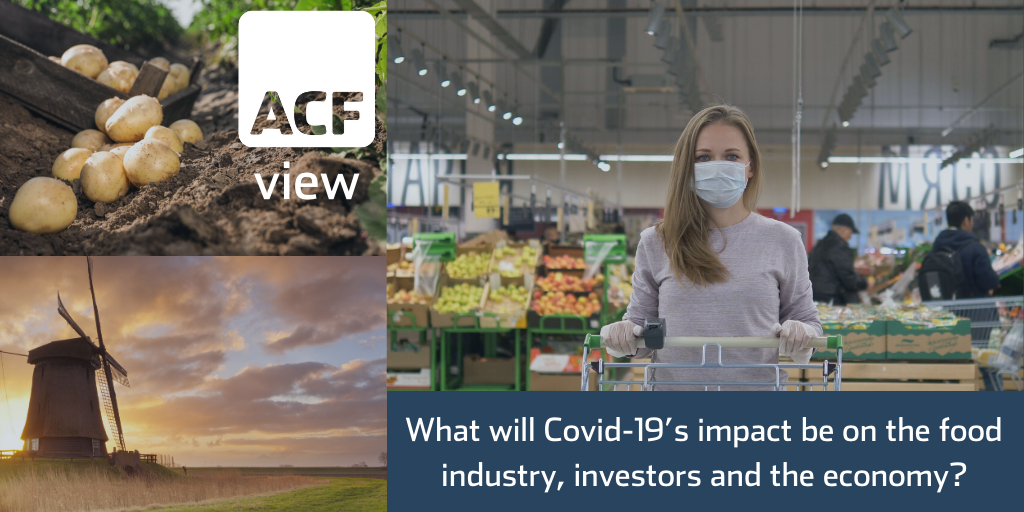What will Covid-19’s impact be on the food industry, investors and the economy?
Netherland farmers are currently faced with an increasing stock-pile of unsold potatoes, on the back of the freeze in the hospitality sector. With over a million tons of potatoes left over from last season and farmers now selling their product at a considerable discount of 0.01 euro per kilogram instead of its usual price of 18 cents, the potato market is facing a potential collapse.
This situation is not isolated to the Netherlands alone and, like most industries, the food industry is likely to be hugely impacted by the coronavirus outbreak. Moreover, while retail and groceries stores are faced with an unprecedented rise in demand – as shoppers’ stockpiled food in fear of a food supply crisis – the wholesale food industry is left with increasing food wastage and lost revenues. With restaurants, pubs and hotels having frozen their operations due to the spread of the virus, farmers are now left with a sharp fall in demand and a rising volumes of unsold food products.
In particular, farmers that supply perishable goods (such as fruits and vegetables) to the hospitality sector are expected to be hit the hardest. While some farmers will be able to redirect their products to retail or charities, it will be difficult for other farmers to achieve this because the challenges caused by highly refined and ultimately inflexible logistics processes that are unable to deal with changes in pack sizes and labelling required for retail food supply as opposed to wholesale food supply. Even if the packaging logistics challenge can be solved quickly, every supermarket has a different barcode protocol, so for example, the bar code that represents 6 large eggs in Tesco is different in Sainsbury. This is turn means that wholesale suppliers cannot simply repackage and rebadge a product with simple bar code and get them into the food chain.
In light of this, we anticipate a restructuring of the food industry logistics process, that could include standardisation of barcodes at least for staple or essential food products and a return to a more flexible approach to logistics. This will increase costs to the food producers and food wholesalers and if these costs are not passed on to the consumer, Covid-19 driven changes in the logistics process will lead to a less financially stable food production system. For investors, and access to capital this means higher risk, leading to a higher cost of capital, leading to less growth and less innovation. Investors, be they debt or equity, will find the sector less attractive, or, consumers will pay more for life’s basics in return for supply security, something they may well not be prepared to do or may not be able to do, this in turn has implications for the real wealth of consumers and growth of the economy.














